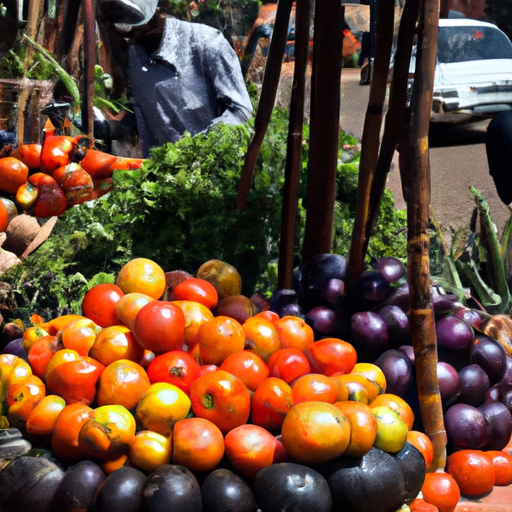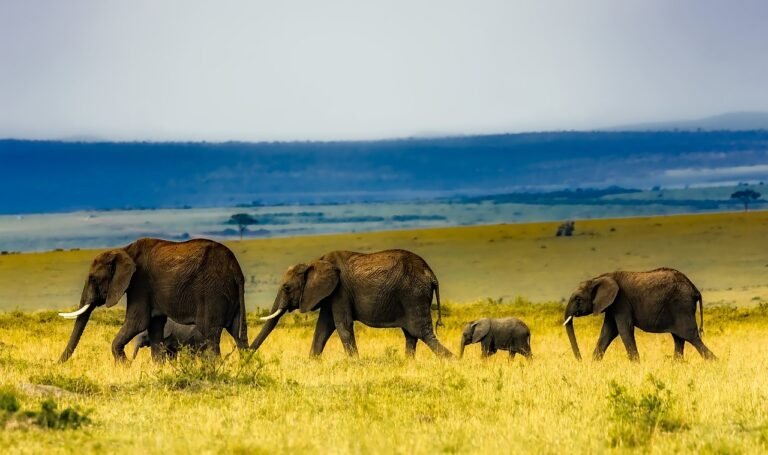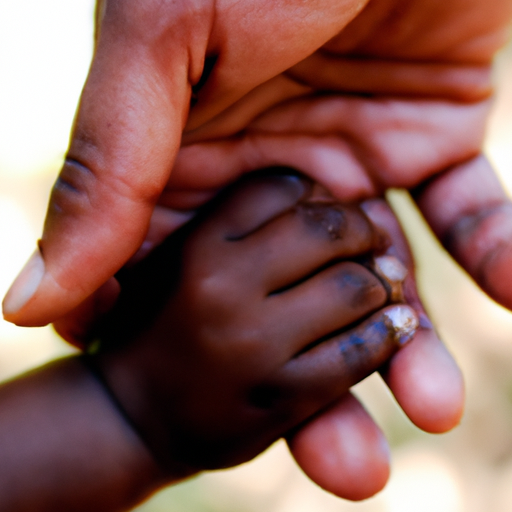What Is The Cost Of Living In Kenya?
Living in Kenya can be an incredible experience filled with unique cultural charm and natural beauty. But before you embark on this adventure, it’s important to understand the cost of living in this East African country. From accommodation to transportation, food to healthcare, this article will provide you with a comprehensive overview of the expenses you can expect when living in Kenya. Whether you’re planning a short-term visit or considering making this vibrant nation your home, we’ve got you covered. So, get ready to dive into the fascinating world of Kenyan living costs and start preparing for your next chapter in this friendly and welcoming country.
Food
Groceries
When it comes to groceries, Kenya offers a wide range of options to suit all budgets. From small local markets to large supermarkets, there are plenty of places where you can buy your essential food items. The cost of groceries in Kenya can vary depending on the location and the type of store you choose. While supermarkets may offer a more extensive selection of products, they can also be slightly more expensive compared to local markets. However, with some smart shopping strategies, you can find good deals and save money on your grocery expenses in Kenya.
Restaurants
If you prefer dining out or trying different cuisines, Kenya has a vibrant restaurant scene that caters to all tastes. From local Kenyan dishes to international cuisines, you can find a wide range of restaurants offering diverse menus. The cost of dining out in Kenya can vary depending on the type of restaurant and location. Fine dining options may be more expensive compared to casual dining or fast food establishments. However, generally speaking, eating at restaurants in Kenya can be relatively affordable, making it an enjoyable and accessible option for many.
Street food
One of the best parts about living in Kenya is the vibrant street food culture. Delicious and affordable, street food is an excellent option for a quick bite or a filling meal on the go. From the famous “nyama choma” (grilled meat) to samosas and chapatis, you can find a variety of mouthwatering street food options across Kenya. Street food is not only budget-friendly but also offers a chance to experience the local flavors and culinary traditions of the country. Exploring the various street food stalls and vendors in Kenya is an adventure in itself and should not be missed.
Housing
Rent
The cost of rent in Kenya can vary significantly depending on several factors such as location, size of the property, and amenities offered. In major cities like Nairobi and Mombasa, the rental prices tend to be higher compared to smaller towns and rural areas. A studio apartment in the city center can cost anywhere between $300 to $600 per month, while a three-bedroom apartment might range from $700 to $1500 per month. Renting a house in the suburbs or rural areas can be more affordable, with prices varying based on the location and property size.
Utilities
When it comes to utilities, Kenya typically follows a pay-as-you-go system. Electricity, water, and gas are paid for separately and are not typically included in the rental price. The cost of utilities in Kenya can vary depending on usage, household size, and location. On average, you can expect to pay around $60 to $100 per month for electricity, water, and gas combined. It’s important to note that excessive usage or luxury amenities may result in higher utility bills.
Property prices
If you’re considering buying property in Kenya, the prices can vary significantly depending on the location, size, and type of property. In major cities like Nairobi, property prices tend to be higher compared to smaller towns and rural areas. A two-bedroom apartment in the city center can cost anywhere between $70,000 to $150,000, while a three-bedroom house in the suburbs might range from $100,000 to $250,000. It’s important to conduct thorough research and engage with real estate professionals to make an informed decision when purchasing property in Kenya.
Transportation
Public transportation
Public transportation in Kenya is diverse and includes buses, matatus (minibusses), motorcycles, and trains. Buses and matatus are the most common mode of public transport, with routes connecting various parts of the country. The cost of public transportation is relatively affordable, with bus fares starting as low as $0.50 for short distances. Matatu fares vary depending on the distance traveled, but they are generally inexpensive. Trains are another option, especially for longer journeys. The cost of train tickets can vary based on the class and distance, but it is usually affordable.
Private transportation
For those who prefer more convenience and flexibility, private transportation options are available in Kenya. Owning a car in Kenya can be expensive due to high import taxes, but there is a thriving market for used vehicles. The cost of purchasing a car in Kenya can vary depending on the make, model, and condition of the vehicle. Additionally, expenses such as fuel, car insurance, and maintenance should be taken into account when considering private transportation.
Fuel prices
Fuel prices in Kenya are subject to fluctuations due to global oil prices and local taxes. As of now, the petrol prices in Kenya range from $1.00 to $1.15 per liter, while diesel prices range from $0.85 to $1.00 per liter. These prices can have an impact on transportation costs, especially for those who rely on private vehicles for daily commuting or long-distance travel. It’s important to budget for fuel expenses accordingly.
Education
School fees
Education is a crucial aspect of a child’s development, and Kenya has a well-established education system. The cost of school fees in Kenya can vary depending on the type of school, curriculum, and facilities offered. Public schools in Kenya are generally more affordable, with fees ranging from $50 to $200 per year. Private schools, on the other hand, can have higher fees, ranging from $500 to $3000 per year. Additionally, international schools tend to have even higher fees, ranging from $5000 to $20,000 per year.
Books and supplies
Apart from school fees, parents also need to consider the cost of books and supplies for their children’s education. The price of books and supplies can vary depending on the grade level and curriculum. On average, parents can expect to spend around $50 to $200 per year on books and supplies. However, this cost may vary depending on the specific requirements of the school and the student.
Extracurricular activities
Extracurricular activities play a vital role in a child’s overall development. From sports to music and arts, Kenya offers a variety of extracurricular activities for children to explore and pursue their interests. The cost of these activities can vary depending on the type of activity and the level of involvement. Many schools and community centers offer affordable or even free extracurricular programs, while specialized classes or private lessons may have higher fees. It’s important to research and explore the available options to find activities that fit within your budget.
Healthcare
Doctor visits
Access to quality healthcare is an essential aspect of the cost of living in Kenya. Doctor visits in Kenya can vary in cost depending on the type of healthcare facility and the specific services required. Public healthcare facilities generally offer more affordable options, with consultations ranging from $5 to $30. Private healthcare providers, on the other hand, may have higher consultation fees, starting from $30 and going up to $100 or more. It’s important to have health insurance or budget accordingly for healthcare expenses.
Medication
The cost of medication in Kenya can vary depending on the type of medicine, brand, and dosage. There are both generic and branded medications available in pharmacies and hospitals across the country. Generic medications are generally more affordable, while branded medications can be more expensive. The cost of common over-the-counter medicines can range from $1 to $10, while prescribed medicines may cost more. It’s advisable to consult a healthcare professional and compare prices at different pharmacies to find the best options for affordable medication.
Health insurance
Having health insurance is highly recommended in Kenya to cover medical expenses and ensure access to quality healthcare. Health insurance premiums can vary depending on the insurance provider, coverage options, and individual factors such as age and pre-existing conditions. On average, health insurance premiums in Kenya can range from $50 to $200 per month for an individual, and higher for families or comprehensive coverage. It’s essential to carefully review insurance plans and choose one that fits your needs and budget.
Entertainment
Movies
Kenya has a vibrant entertainment scene, including cinemas showing the latest local and international films. The cost of movie tickets in Kenya can vary depending on the location and type of cinema. In major cities, the average price of a movie ticket ranges from $5 to $15, depending on factors such as 3D screenings or premieres. However, there are also more affordable options for movie enthusiasts, including discounted matinee screenings or smaller local theaters that offer lower ticket prices.
Concerts
Kenya’s music scene is vibrant and diverse, offering a wide range of concerts and performances throughout the year. The cost of concert tickets can vary depending on factors such as the popularity of the artist, venue, and seating arrangements. Tickets for local concerts in Kenya can range from $10 to $50, while international acts or larger venues may have higher ticket prices. It’s advisable to check for early bird or discounted tickets to save money on concert experiences.
Sports events
Sports events, including football matches and athletics competitions, are highly popular in Kenya. Attending a sports event can be an exciting and affordable way to immerse yourself in the local culture. The cost of tickets for sports events in Kenya can vary depending on factors such as the popularity of the event and the seating category. On average, tickets for local football matches can range from $2 to $20, while international events or premium seating may cost more. It’s recommended to check the event schedules and ticket prices in advance to plan accordingly.
Communication
Mobile phone plans
Mobile phones are an essential part of daily life in Kenya, offering communication and access to a range of services. There are several mobile service providers in Kenya, each offering various plans and packages to suit different needs and budgets. Prepaid plans are popular and allow users to control their expenses by purchasing airtime or data bundles. Depending on the usage and provider, mobile phone plans in Kenya can range from $1 to $20 per month, offering a combination of calls, texts, and data.
Internet
Access to the internet is vital for staying connected and accessing information in today’s digital age. In Kenya, there are various internet service providers offering different plans and packages. The cost of internet in Kenya can vary based on the speed, data limit, and type of connection (e.g., wired or wireless). On average, monthly internet plans in Kenya can range from $15 to $50, depending on the provider and the desired speed and data allocation. It’s important to compare plans and choose one that meets your internet usage needs and budget.
Postal services
Postal services still play a role in Kenya, especially for sending and receiving parcels or important documents. The cost of postal services in Kenya can vary depending on factors such as the weight, size, and destination of the item. Local shipping within Kenya is generally affordable, with postage fees starting from $1 for letters or small packages. International shipping costs can vary significantly depending on the destination and the type of service selected. It’s advisable to check with the local post office or courier services for accurate pricing information.
Taxes
Income tax
Income tax is an essential consideration for individuals earning an income in Kenya. The income tax rates in Kenya are progressive, ranging from 10% to 30% based on income brackets. The tax brackets and rates may change, so it’s important to stay updated with the latest tax regulations. Employers usually deduct income tax directly from employees’ salaries. It’s advisable to consult with a tax professional or refer to the Kenya Revenue Authority (KRA) for accurate and up-to-date information on income tax rates and obligations.
Value-added tax
Value-added tax (VAT) is a consumption tax imposed on the sale of goods and services in Kenya. The standard VAT rate in Kenya is currently 16%, but certain goods and services may be exempt or subject to a reduced VAT rate. VAT is typically included in the price of goods and services, and businesses registered for VAT are required to remit the collected taxes to the government. It’s important to keep in mind the VAT rate when budgeting for purchases or expenses in Kenya.
Property tax
Property tax in Kenya is levied on the value of land and buildings owned by individuals or organizations. The tax rates and assessment methods can vary depending on the location and type of property. Property owners are required to submit a property tax return and pay the assessed tax annually. The property tax rates can range from 1% to 2% of the property’s value, but rates and assessments are subject to local government regulations. It’s recommended to consult with local authorities or tax professionals for accurate information on property tax in specific areas of Kenya.
Dining out
Fine dining
For those who enjoy indulging in exquisite culinary experiences, Kenya offers a range of fine dining options. Fine dining restaurants in Kenya often provide a sophisticated ambiance, exceptional service, and gourmet cuisine. The cost of fine dining in Kenya can vary depending on the restaurant, menu, and location. On average, a fine dining experience in Kenya can cost between $50 to $150 per person, including a multi-course meal and beverages. It’s advisable to make reservations in advance and check for any special promotions or discounts that may be available.
Casual dining
Casual dining options in Kenya cater to a broader audience and offer a more relaxed atmosphere compared to fine dining establishments. These restaurants serve a variety of cuisines, including local and international dishes. The cost of casual dining in Kenya can vary depending on the restaurant, menu, and location. On average, a casual dining experience in Kenya can range from $10 to $30 per person, including a main course and beverages. Some casual dining establishments also offer affordable lunch or dinner specials, making it more budget-friendly.
Fast food
Fast food chains have also made their mark in Kenya, offering quick and affordable options for those on the go. Popular international fast food chains, as well as local favorites, can be found throughout the country. The cost of fast food in Kenya can vary depending on the chain and the specific items ordered. On average, a fast food meal in Kenya can range from $5 to $10 per person. Fast food is often a convenient and cost-effective option for a quick meal or snack.
Clothing
Branded clothing
Kenya offers a range of shopping options for those looking for branded clothing. From international brands to local designer labels, there are various stores and malls where you can find the latest trends. The price of branded clothing in Kenya can vary depending on the brand, style, and location. Generally, branded clothing in Kenya can range from $20 to $200 or more per item, depending on the designer and exclusivity. Sales and promotions are common in Kenya, offering opportunities to get branded clothing at discounted prices.
Local clothing brands
Kenya also has a thriving fashion industry, with many local clothing brands showcasing their unique designs and styles. Local clothing brands in Kenya provide a range of affordable and trendy options for both casual and formal wear. The prices of local clothing brands in Kenya can vary depending on the brand, quality, and uniqueness of the designs. On average, prices for local clothing brands in Kenya can range from $10 to $50 per item, offering accessible and fashionable options for all.
Second-hand clothes
Second-hand clothes, commonly known as “mitumba,” are popular in Kenya and provide affordable clothing options for many people. Mitumba markets and stalls can be found throughout the country, selling gently used apparel at budget-friendly prices. The cost of second-hand clothes in Kenya is considerably lower compared to new clothing items. Depending on the item and condition, you can find second-hand clothes in Kenya for as low as $1 to $10 per piece. It’s worth exploring mitumba markets for affordable and unique fashion finds in Kenya.
In conclusion, the cost of living in Kenya can vary depending on several factors such as location, lifestyle, and personal preferences. While certain expenses may be higher in major cities, there are also plenty of affordable options available across the country. With smart budgeting and research, it is possible to enjoy a comfortable and fulfilling lifestyle in Kenya without breaking the bank.







